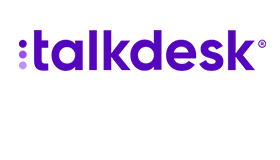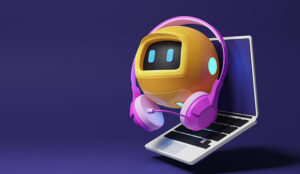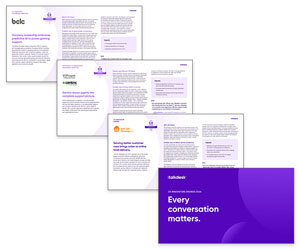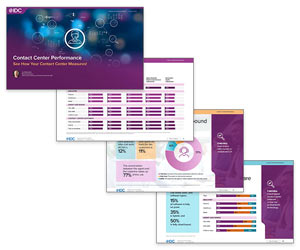Talkdesk has released a new Research Report, “The promise (and pitfalls) of self-service automation in customer service”.
As customer experience (CX) teams are challenged to do more with less in today’s economy, the report shows that many CX leaders are adopting artificial intelligence (AI) tools to improve customer support and overall experience (75%).
“AI has recently been catapulted into the spotlight thanks to large language models like GPT-4; but AI and chatbots have long been a core part of CX departments. As these tools become more advanced, they are taking on a bigger role in customer service processes – to varying degrees of success,” said Charanya Kannan, chief product, engineering, and customer officer at Talkdesk.
“As today’s economy drives labour and skills shortages that hinder CX, it’s more important than ever that companies not only invest in automated tools, but design these solutions in a way that truly simplifies and streamlines customer experiences – therefore mitigating frustration and driving loyalty.”
Cost-Conscious CX Teams Invest in Self-Service Automation Amid Economic Troubles
Following two years of a booming economy, today’s CX teams are tightening budgets and looking for less expensive ways to scale their operations.
As a result, many CX leaders are looking to self-service automation through virtual agents and chatbots as a means to continue delivering great CX while reducing operational costs.
- In today’s economy, the top challenges hindering CX teams’ goals are rising costs (61%), and frontline staffing and skills shortages (57%)
- In order to contain costs or scale to meet demand with fewer human agents, many CX leaders are investing in natural language-based chatbots (35%) and voice-based virtual agents (40%) in the next six months
Conversational AI Has Massive Potential When Designed Properly
The future of customer service will hinge on AI-driven self-service tools that simplify customer experiences.
Despite AI seeing significant advancement and driving improved CX in recent years, many companies are still missing the mark with their deployments and delivering poor experiences either by using older technology or through inadequate conversational design.
- Less than one-fifth of consumers report that their most recent customer service interactions included a chatbot (18%) or a voice-based AI assistant (11%). Most consumers still prefer managing customer service situations through live phone conversations (47%) or live chat (31%).
- While roughly half of consumers are comfortable using AI tools to resolve customer service issues (48%), they find these channels simply aren’t as effective as speaking directly with a live agent. In fact, the report finds human agents are up to 2.7 times more likely to resolve an issue on first contact as compared to an AI system.
- The good news is that consumers are willing to try again with AI agents, as long as companies are able to improve efficacy. Nearly two-thirds of consumers say they would interact with an AI system if it means they can arrive at a faster resolution (64%).
Realizing AI’s Potential in the Contact Centre Will Require CX Teams to Take the Following Steps:
- Optimize new AI tools with good conversational design
- Implement a fallback mechanism in virtual agents
- Provide a way for customers to opt out and connect with a human agent
- Continuously improve virtual agents through testing and training
- Reimagine virtual agents with GPT and large language models
Methodology
This report contains insights from three separate respondent pools:
- Survey 1, entitled 2022 Talkdesk Consumer Insights Survey, was fielded in August 2022 to a sample of 1,003 consumers based in the US and UK with at least one customer service interaction in the previous year.
- Survey 2, entitled 2022 Talkdesk CX Professional Survey, was fielded in July 2022 to a sample of 301 professionals based in the US and UK. CX professionals included customer experience, customer service, CX operations, and IT and were employed by organizations across a range of industries with at least 100 employees.
- Insights were augmented by three focus groups with 29 US consumers to understand what specifically is frustrating about experiences with virtual agents and chatbots. All 29 respondents attested to having had an interaction with an AI or automated system in a customer service scenario within the previous seven days.
This blog post has been re-published by kind permission of Talkdesk – View the Original Article
For more information about Talkdesk - visit the Talkdesk Website
Author: Talkdesk
Published On: 3rd Apr 2023 - Last modified: 4th Apr 2023
Read more about - Industry News, Talkdesk






 Talkdesk is a global customer experience leader for customer-obsessed companies. Our contact center solution provides a better way for businesses and customers to engage with one another.
Talkdesk is a global customer experience leader for customer-obsessed companies. Our contact center solution provides a better way for businesses and customers to engage with one another. 
































